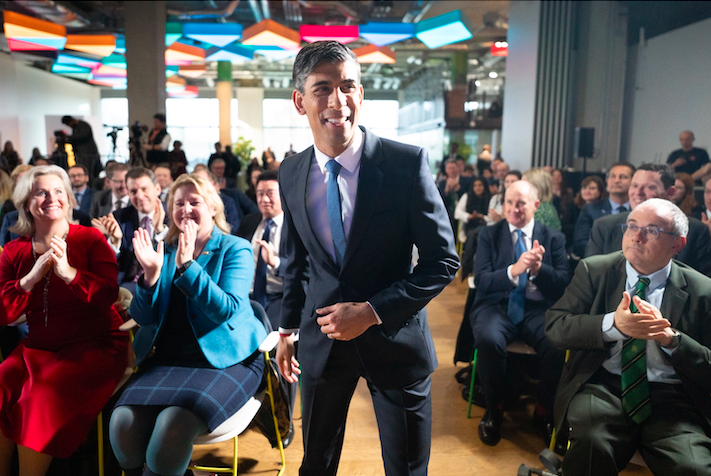Rishi Sunak has a rebel problem: we already know that. He’s got factions of Tory MPs prepared to vote against the government on a range of issues, and the Prime Minister knows that on each issue, there are different rebels, rather than just one easy-to-identify awkward squad. Even when he is, as Katy explains in the magazine this week, focusing on issues that unite the party rather than reforms that will provoke some rebels such as planning reform, he still has trouble on his hands.
The current trouble comes in the form of the Online Safety Bill, which has a phalanx of Conservatives prepared to vote against their party whip in order to toughen up the legislation. The amendment by veteran Conservative Bill Cash would make tech bosses criminally liable for their companies’ failure to protect children from harmful online content. It now has more than 40 Tory MPs signed up. Culture Secretary Michelle Donelan is trying to quell the revolt, saying she’s ‘not ruling out’ changes before the report stage. One of the key rebels, Miriam Cates, has been arguing that this isn’t a rebellion at all, but just members doing the job they were elected to do in scrutinising and improving legislation.
There is undoubtedly a strong element in this rebellion and all the others of the Tory party being so exhausted that many of its MPs just can’t be bothered to unite and are pursuing their own special interests. But Cates’s argument is interesting because it suggests MPs are becoming more interested in being legislators than they were previously. MPs on the more recent intakes have become hyper local, as worried about constituency issues and the opinions of their local voters as they are about how happy the Prime Minister and party whips are with them. When I started to meet the newly-elected MPs in 2019, I was struck by how many of them just talked about constituency issues as their priorities rather than national policy debates. The pandemic meant these MPs spent even less time in Westminster and their feedback loops are different from previous generations. They haven’t got used to the rewards of pleasing the party hierarchy in the same way.
Mind you, those rewards have diminished in prestige too in recent years. Why be a junior minister or a parliamentary private secretary when you can have more fun and attention as a select committee chair? The alternative career path offered by select committees doesn’t even preclude ambitious MPs from joining the government at some stage. Neither, in fact, does rebelling against the party whip, which used to be a black mark against your record for at least the length of one parliament.
All of these factors should apply in exactly the same way to the Labour party, which is currently taking the prospect of being in government very seriously. Does this mean that a Keir Starmer premiership would be beset with the same rebellions as Sunak is facing now? I suspect not initially, in part because Labour MPs have a much more tribal approach to politics. One frontbencher explained this to me as coming from the solidarity of the trade union movement, because they’d all stood together on picket lines – though of course they’re not allowed to go on picket lines at the moment. But that early sense of purpose might fade a little sooner than you’d expect. After all, MPs are increasingly independent.
It would be much better if MPs trying to improve legislation were seen as doing their jobs rather than annoying rebels. Government ego is such that at the moment the assumption is that all the wisdom lies in Whitehall and not on the green benches of the Commons, but MPs are first and foremost elected as legislators rather than just ambitious types on their way to a government. Of course, someone who votes against their party whip regularly is a different matter: political parties exist to get things done. But the odd rebellion here and there over an important piece of legislation is becoming less toxic, and all to the good of politics – if not to the egos of those in charge.







Comments